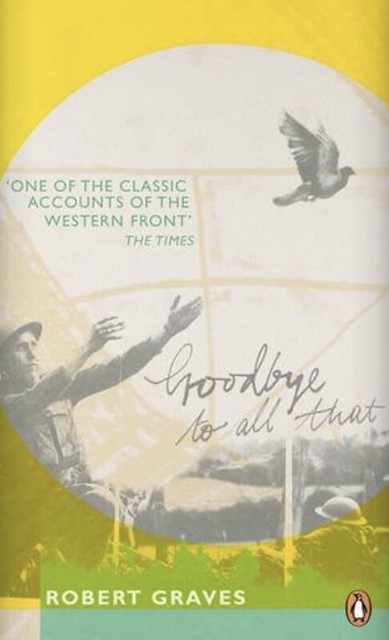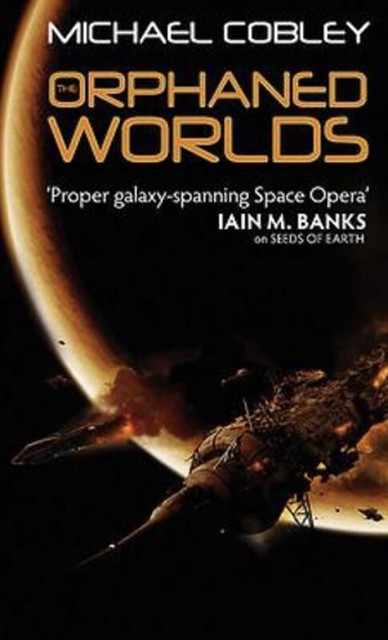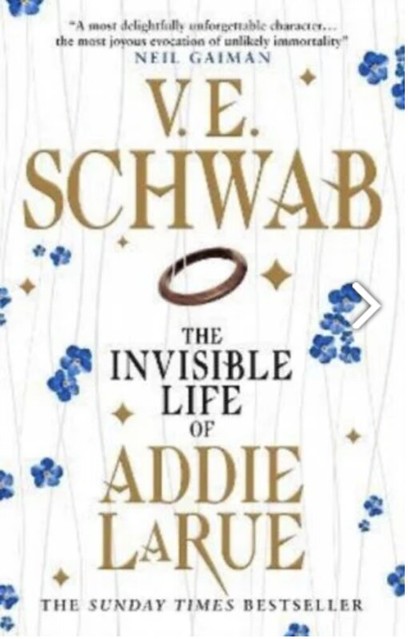 Robert Graves: Goodbye To All That I first came across Robert Graves in my earliest youth, as the translator and re-teller of the Greek myths that I learned at my mother’s knee. I had always been captivated by his prose, elegant and yet easy and lucid. I wasn’t really aware, however, that he was a poet of some standing, nor that he had served on the trenches in the Great War. Goodbye To All That is his autobiography, written in his early thirties after he had fled to Majorca, swearing to leave England for good (hence the title). And it’s no wonder he wanted to get away from it all. Born in 1895, Graves was sent to a series of dismal preparatory schools before being thrown at Charterhouse, a well-known public school for boys where his time seems to have been uniformly miserable. He went straight from Charterhouse to the Western Front, which he seems to have preferred to his schooldays. Most of the book concerns his war service, which he re-tells in great detail and indeed the book is now regarded as an important source of information about trench life. After the war he married, but his marriage was unhappy and after a concatenation of personal and business disasters he fled Britain’s shores to write everything down. Goodbye To All That made his name and was a literary and financial success. Given the often depressing nature of Graves’ experiences you’d think that reading this book might be a chore, but far from it. The tone is breezy and bright, and full of (often very dark) humour. I gobbled it up over a weekend and enjoyed it immensely.
Robert Graves: Goodbye To All That I first came across Robert Graves in my earliest youth, as the translator and re-teller of the Greek myths that I learned at my mother’s knee. I had always been captivated by his prose, elegant and yet easy and lucid. I wasn’t really aware, however, that he was a poet of some standing, nor that he had served on the trenches in the Great War. Goodbye To All That is his autobiography, written in his early thirties after he had fled to Majorca, swearing to leave England for good (hence the title). And it’s no wonder he wanted to get away from it all. Born in 1895, Graves was sent to a series of dismal preparatory schools before being thrown at Charterhouse, a well-known public school for boys where his time seems to have been uniformly miserable. He went straight from Charterhouse to the Western Front, which he seems to have preferred to his schooldays. Most of the book concerns his war service, which he re-tells in great detail and indeed the book is now regarded as an important source of information about trench life. After the war he married, but his marriage was unhappy and after a concatenation of personal and business disasters he fled Britain’s shores to write everything down. Goodbye To All That made his name and was a literary and financial success. Given the often depressing nature of Graves’ experiences you’d think that reading this book might be a chore, but far from it. The tone is breezy and bright, and full of (often very dark) humour. I gobbled it up over a weekend and enjoyed it immensely.
 Alice Feeney: Daisy Darker When Daisy Darker’s grandmother invites her family to Seaglass, her crumbling home set on an island off the Cornish coast accessible only at low tide, you know that dastardly doings are in store. Especially as the occasion is for the grandmother to read her will. Apart from the grandmother and Daisy herself (who you soon realise is not necessarily a reliable narrator) the members of the family are uniformly appalling, and it’s no wonder that they haven’t been gathered together in the same place simultaneously all at once and together for decades, such is their mutual antipathy. In an entirely knowing nod to Agatha Christie (And Then There Were None) with overtones of Stephen King, you will probably be able to work out what’s going to happen well before the ending (though I didn’t — I’m lousy at whodunits). Despite this it’s a deliciously enjoyable summer read.
Alice Feeney: Daisy Darker When Daisy Darker’s grandmother invites her family to Seaglass, her crumbling home set on an island off the Cornish coast accessible only at low tide, you know that dastardly doings are in store. Especially as the occasion is for the grandmother to read her will. Apart from the grandmother and Daisy herself (who you soon realise is not necessarily a reliable narrator) the members of the family are uniformly appalling, and it’s no wonder that they haven’t been gathered together in the same place simultaneously all at once and together for decades, such is their mutual antipathy. In an entirely knowing nod to Agatha Christie (And Then There Were None) with overtones of Stephen King, you will probably be able to work out what’s going to happen well before the ending (though I didn’t — I’m lousy at whodunits). Despite this it’s a deliciously enjoyable summer read.
 Michael Cobley: Orphaned Worlds This is the second part of a sci-fi trilogy that started with Seeds of Earth, which I reviewed last month. Here the braw and brawny human colonists of the planet Darien (who read like a collection of extras from Outlander) are assailed on all sides — by the brutal Hegemony (in which the home planet Earth is a junior partner); their even more brutal allies, the Brolturans — and, joining in the fray, a fleet of religious maniacs, together with opponents from a conflict that played out aeons before — all for control of an ancient matter-transference device beneath the planet’s surface. The author throws everything and the kitchen sink into this enjoyable space-operatic romp. (To be continued).
Michael Cobley: Orphaned Worlds This is the second part of a sci-fi trilogy that started with Seeds of Earth, which I reviewed last month. Here the braw and brawny human colonists of the planet Darien (who read like a collection of extras from Outlander) are assailed on all sides — by the brutal Hegemony (in which the home planet Earth is a junior partner); their even more brutal allies, the Brolturans — and, joining in the fray, a fleet of religious maniacs, together with opponents from a conflict that played out aeons before — all for control of an ancient matter-transference device beneath the planet’s surface. The author throws everything and the kitchen sink into this enjoyable space-operatic romp. (To be continued).
 V. E. Schwab: The Invisible Life of Addie La Rue Adeline La Rue is an illiterate peasant girl born in the French countryside towards the end of the seventeenth century. Fearing a short, brutal life of drudgery and, at best, boredom, she makes a deal with the Devil to be free. But desperate souls never read the small print (the Devil being, of course, in the details) and Addie is destined to go through life instantly forgotten by everyone she meets, and unable to make her own mark on history — except, it seems, as a muse for others. Until, that is, three hundred years later, when she meets Henry, manager of a small secondhand bookstore in New York — who remembers her. Henry, you see, has made his own, rather different deal with the Devil. Towards the end, Addie and Henry work to see if they can unstitch their own respective Faustian bargains. This book was recommended to me by Gee Minima, whose tips I always take seriously (it was she who put me on to The Night Circus, my Top Read of 2014), and with a front-cover puff from Neil Gaiman, no
V. E. Schwab: The Invisible Life of Addie La Rue Adeline La Rue is an illiterate peasant girl born in the French countryside towards the end of the seventeenth century. Fearing a short, brutal life of drudgery and, at best, boredom, she makes a deal with the Devil to be free. But desperate souls never read the small print (the Devil being, of course, in the details) and Addie is destined to go through life instantly forgotten by everyone she meets, and unable to make her own mark on history — except, it seems, as a muse for others. Until, that is, three hundred years later, when she meets Henry, manager of a small secondhand bookstore in New York — who remembers her. Henry, you see, has made his own, rather different deal with the Devil. Towards the end, Addie and Henry work to see if they can unstitch their own respective Faustian bargains. This book was recommended to me by Gee Minima, whose tips I always take seriously (it was she who put me on to The Night Circus, my Top Read of 2014), and with a front-cover puff from Neil Gaiman, no fewer less, The Invisible Life of Addie La Rue was a must-read. And it’s terrific. The writing is astonishingly good. The characters, both prosaic and demonic, leap off the page. If I have one criticism (shared by Gee Minima) it does tend to sag a bit two thirds of the way through and could have lost about fifty pages with no harm done.
 Stephen Fry: Making History The actor, director, memoirist, techno-geek, celebrity depressive, comedian, driver of decommissioned London taxis, fellow supporter of Norwich City FC and National Treasure that is Stephen Fry also writes novels. Heavens, is there anything this man cannot do? Notwithstanding inasmuch as which, this one is science fiction, noch, and it’s not half bad. It’s hard to say much of what it’s about without introducing spoilers, but suffice it to say it starts with a Cambridge history graduate just about to finish his doctorate thesis who collides with a German emigre quantum physicist, with hilarious and unpredictable results…
Stephen Fry: Making History The actor, director, memoirist, techno-geek, celebrity depressive, comedian, driver of decommissioned London taxis, fellow supporter of Norwich City FC and National Treasure that is Stephen Fry also writes novels. Heavens, is there anything this man cannot do? Notwithstanding inasmuch as which, this one is science fiction, noch, and it’s not half bad. It’s hard to say much of what it’s about without introducing spoilers, but suffice it to say it starts with a Cambridge history graduate just about to finish his doctorate thesis who collides with a German emigre quantum physicist, with hilarious and unpredictable results…

